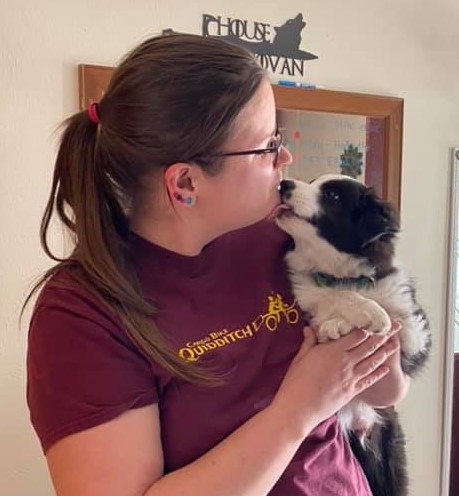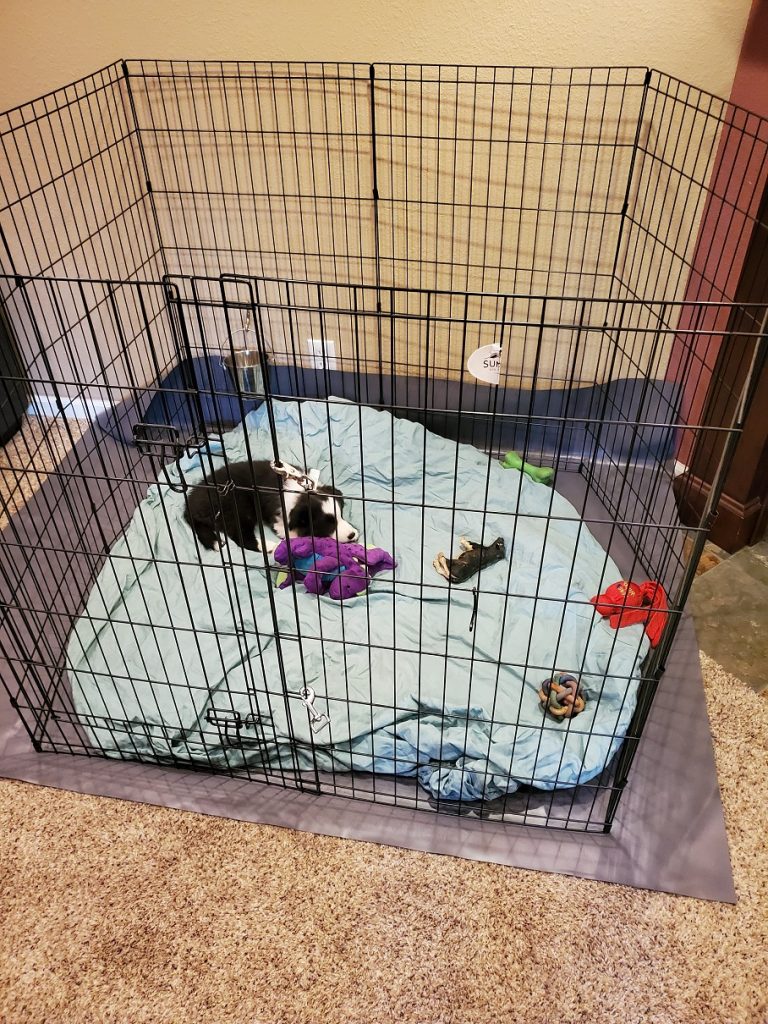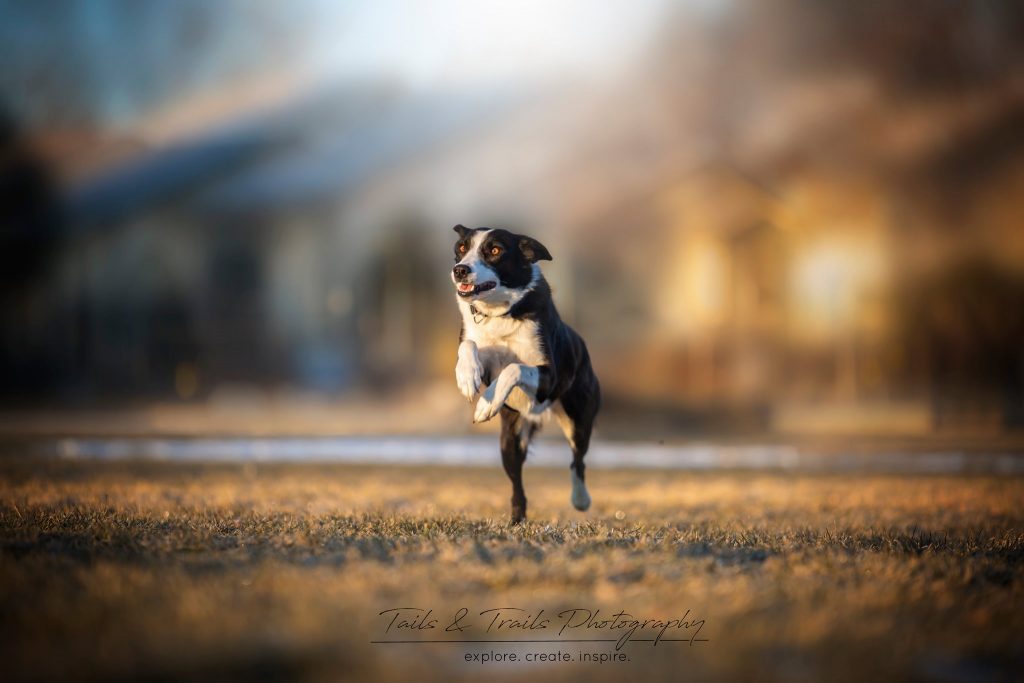Adding a new dog to your family is a very exciting time, no matter their age, but there’s something about puppies. They are cute, of course, and so fuzzy and soft. There’s a certain appeal to raising a puppy, we can do our best to mold their behavior to suit our families’ needs, and remember how cute they are? Let’s talk about what it really takes to raise a puppy – because for some dog owners, that appeal goes away once they realize what is involved in raising a puppy.

On some level we get it, puppies are baby dogs, and we have to raise them to be good adult dogs. Too often, though, we have romanticized the idea of raising that baby into a dog, and what that actually entails. Puppies are born helpless, with their eyes and ears closed – their world is driven by smell and touch. Research has shown that the first 8 weeks of life before your puppy comes home with you are critical in that puppy’s development. It takes a lot of dedication to carefully and systematically expose puppies to everything they need in the first 8 weeks – and the best breeders/puppy raisers (in the case of rescued puppies) follow detailed programs such as Puppy Culture, Enriched Puppy Protocol, or AviDog to raise the most well balanced puppies they can. If you can get a puppy from someone who has raised their litter using a program such as this, you’ll be doing yourself a real favor!
By the time your puppy comes home with you, they are no longer helpless in the sense that they were as newborns. They can hear and see as well as an adult dog, they can eliminate all on their own (yes, mom helps them with this when they are young!), and they have decent control over their movements (although are still very floppy!). However, you are still raising a baby animal, and there are many things they are unable to do as well as adult dogs. They are unable to thermoregulate as well, so you have to make sure they don’t get too hot or too cold. They don’t have good bladder control, and will need to pee immediately upon waking up, and about every 45 min to an hour during their waking hours. At this age, they often can’t sleep through the night without having to pee. They aren’t great at communicating that they need to eliminate, and when they do, we are not very good at recognizing their communication. They are terrible at switching from play to nap time, and the typical response to overtiredness is biting and grabbing at anything within their reach, unable to be consoled or redirected. They know absolutely nothing of the world, so they require a thoughtful and systematic approach to introducing each new thing. This also includes training lessons to learn each and every skill they need to know to be successful in your world. They have short attention spans, so training sessions need to be planned out well to ensure they are learning what they need to in the time they can attend to the lesson. They have zero concept of respecting a person or animal’s personal space, and will jump and bite at you, your kids your guests, and your other pets.
What all of this equates to is WORK. As the puppy parent, your job is to recognize these things your puppy is not particularly good at, and work to develop those skills. Teaching a puppy to eliminate outside means scheduling your life around the puppy. If the puppy will be left for more than a couple hours during the day, you will need to create a space in your house where you will not be upset if the puppy eliminates, and they will be able to get away from it (i.e.- not a small crate), ideally a pen with pads or a litter box. You may have to hire someone to let your puppy out throughout the day, because not only do puppies need to eliminate, they also crave social attention! Speaking of a pen, a playpen where your puppy has toys to entertain themselves with, located in a central area of the house, will make your life so much easier. But it’s a big thing, and it’s going to take up space in your house. I used to only use crates, but the problem is that you risk a negative association with the crate when that’s your only option for management, and I want my puppy to learn that the crate is a wonderful place to relax. Maybe you have a multi-level household, and need a safe space to put the puppy on each level. Now you’ve got a few crates in different rooms and a giant pen in your living room. It will feel like this puppy is taking over your house. Luckily it’s only temporary!

Once you’ve rearranged your life to make life with your puppy easier, the biggest time investment comes in – socialization and training. Puppies grow up so quickly, and this is a case where opportunity has a time limit. At around 14-16 weeks of age, puppies acceptance of new things slows way down. Depending on the puppy’s temperament and breed, anything they haven’t been exposed to before that age may be perceived as threatening or scary. How your puppy needs to be socialized will depend on their early life experiences (before 8 weeks, or when they come home), breed, genetics, and individual personality. Some puppies are ready to take on the world and love experiencing new things, while others need a gradual approach to exposure. You may need professional help if your puppy is responding abnormally in any way during the socialization period, or if your puppy was under-socialized (as may be the case in a rescue puppy who came into rescue after the socialization period). Formal training sessions will be short, but training never stops, because your learner never stops learning. Everything you do when interacting with the puppy is teaching them something. This means that you have to be “on” when the puppy is not sleeping or in their pen. Letting your guard down, or being lazy about your consistency can have big consequences. If the puppy steals your sandwich off the side table just once, you have created an uphill battle when it comes to counter surfing. Once your puppy realizes how good it feels to chew on the wooden leg of the coffee table, you will have to work that much harder to convince them not to. All of this takes time and effort, and can be emotionally tiring. Trainers sometimes refer to the “puppy blues”, where a new owner is tired from being woken up in the middle of the night, drained from supervising the puppy (this is amplified if there are human children in the picture!), and they start wondering why they got the puppy in the first place, and if they will make it through.
I think we can ward off the puppy blues with reasonable expectation setting. Puppies are a lot of work. You will get woken up in the middle of the night, or in the wee hours of the morning. Your hands and your feet will get bitten, and you will need to dedicate space in your house to prevent that from becoming a problem. You will need to schedule in time for socialization outings and training. You may need professional help. Setting these expectations helps you set yourself, your family, and your puppy up for success. If you are considering a puppy, be really honest with yourself about whether or not a puppy is right for you at this time. It’s perfectly OK to not want to dedicate yourself to these things, and I applaud you for thinking about it before you brought a puppy home. If you already have a puppy and are feeling the puppy blues, take a step back and adjust your expectations, I’m positive it will help.



